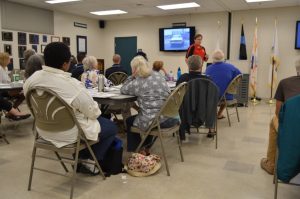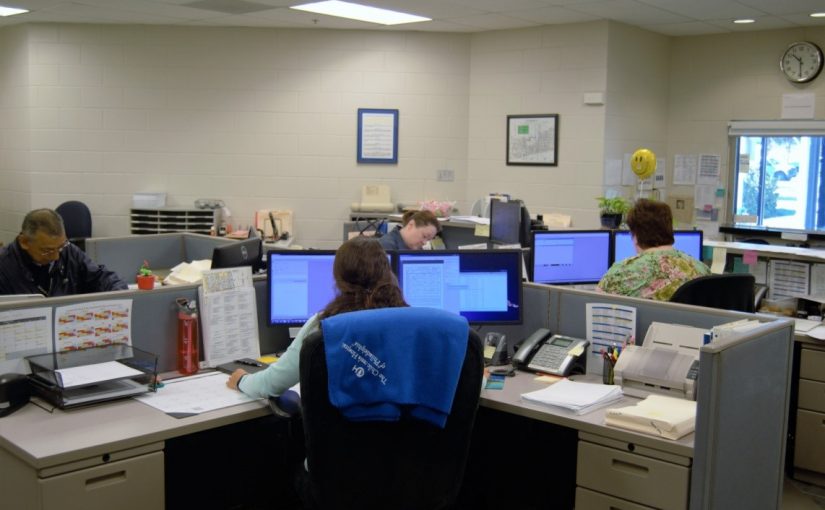Many organizations outside of the field law enforcement have used unpaid civilian volunteers for a significant number of years—to the point where they have become essential contributors to the organizations’ success. For example, hospitals and libraries probably could not function effectively without their teams of volunteers. Hospitals use volunteers to man information desks, answer phones, schedule patients, and transport patients around the hospital, while libraries use them for all the duties associated with running the library, such as shelving books, checking books out or in, and assisting patrons. Some law enforcement agencies have used paid and unpaid auxiliary officers over the years, and in many cases, smaller agencies are often dependent upon part-time officers to meet workload needs during peak periods. However, while these part-time and auxiliary officers have been widely accepted in law enforcement, most departments have been reluctant to use civilian volunteers in meaningful numbers. This reluctance stems from various reasons. For instance, some organizations have voiced concerns about confidentiality, and whether they like to admit it or not, police departments tend to be traditional—which in this case, means using sworn officers. It is also difficult for some people to understand why individuals would work for no pay.
Principles Involved in Using Volunteers
There are a number of reasons why people volunteer. Some retirees are simply bored and miss working. Some people volunteer to gain work experience and enhance their resume after long periods out of the workforce. Many others simply volunteer to help their community. Departments who use volunteers often attract individuals who are highly qualified in specific areas. These individuals often come with years of experience and extensive education and training. An easy example of these specialties is computer skills. There are many civilians who, because of their previous employment and training, are much more qualified in computer-based tasks than the police officers and civilian employees an agency might assign to those areas. Also, police departments that are fortunate enough to be in locations where there is a large retired population often make use of retired police officers who have extensive experience—one can imagine how a retired homicide detective from a major city would be of value to a small or medium-size agency that has few homicides and, thus, less experience.
Once the agency makes a decision to use volunteers, the organization must commit to certain principles. The basics that apply to hiring paid personnel also apply to the use of volunteers. They must be recruited, properly screened, and sufficiently trained to perform their assigned duties. They must also be introduced to and taught the goals, policies, procedures, rules, and regulations of the organization. In addition, volunteers need to be treated like regular employees in many ways. They need to receive recognition when they perform good work. They need to receive discipline when they do not follow the rules of the organization. They need to be assigned to work they can perform. If they can’t perform the assigned jobs, they should be reassigned to something that matches their skills or terminated. They also must be assigned meaningful work, rather than simply being used in random tasks that regular employees do not consider important or interesting. In summary, they need to be held to the same performance and behavioral standards as paid employees.
One of the most important basic principles is that volunteers must be accepted into the organization—they need to feel that their work is important and appreciated by those who work with them. Introducing the concept of volunteers sometimes meets with resistance from standard, paid employees, but this is almost always overcome when they discover the value of having extra personnel available when the need arises.
One agency that has successfully established a robust volunteer program is the Jacksonville Beach, Florida, Police Department.
Jacksonville Beach Police Department
Jacksonville Beach is located in Duval County, directly east of its much larger neighbor, Jacksonville, Florida. The city has an estimated population of 22,805 in an area of 22 square miles.1 The medium family income is estimated to be over $80,000, and housing costs vary from $250,000 to residences costing half a million and more closer to the water. It operates under the city manager form of government. As a resort area, the community experiences a very heavy influx of people and vehicle traffic during the spring, summer, and fall. Jacksonville Beach is the largest of the beach communities in this area and receives the majority of beachgoers from the city of Jacksonville.

The Jacksonville Beach Police Department consists of 64 sworn officers.2 They do use the community service officer concept with un-armed, uniformed employees answering certain types of calls to free up sworn officers. In Jacksonville Beach, a full-time Community Service Officer is responsible for supervision of parking enforcement, school crossing guards, and additional Community Service Officers. The crime rate, which is based upon permanent residence, is slightly higher than similar-sized Florida cities, but, when the large influx of nonresident visitors is taken into consideration, the crime rate is lower than most similar-sized Florida tourist areas. Jacksonville Beach experienced a total of six homicides in the last five reporting years, and in two of those years, they had zero.43They had 63,386 calls for service in 2015.4 Jacksonville Beach Police Department’s mission statement, “Working with Citizens for a Safe Community,” is very compatible with—and supported by—their volunteer program.
The Volunteer Program
The volunteer program at the Jacksonville Beach Police Department was started in 1999 and has continued to grow each year. It is divided into three phases that result in two distinct types of volunteers. The program is well integrated into the department’s operations and regular, paid employees work side-by-side with the volunteers.
Citizens Police Academy

for volunteers. Two 39-hour classes are held each year.
The first phase of the volunteer program, the Citizens Police Academy, is similar to those run by other agencies with the goal of educating citizens about what occurs in actual police work as opposed to what they see of “policing” on television. The department conducts two of these academies annually, each with 30 to 35 students. Participants receive some screening, consisting of a criminal background check. The academy is conducted for three hours, once a week, for a total of 13 weeks. In addition to these 39 hours, students are offered a range day where they can fire police weapons. They also participate in a ride-along with a patrol officer. Participants in the program pay $25 to cover their books, class materials, and polo shirt.5 The class is conducted by the training unit, with instructors drawn from all functions within the police department. Upon graduation from the academy, graduates are offered membership in the Citizens Police Academy Alumni Association (CPAAA).
Citizens Police Academy Alumni Association
The alumni association is the first level that provides support to department operations in the form of volunteers. The CPAAA is a standalone organization with its own president, vice president, treasurer, secretary, and directors. Their members perform a wide variety of support functions in support of the operation of the department, and they receive additional training in the areas in which they work.

The volunteers at this level give support to the front office by staffing the lobby, which is the first point of contact with visitors; they give directions and provide information as required. They also do beach patrol with ATVs to aid visitors, help locate missing persons, and assist with any other problems that may occur. Volunteers also help animal control with the feeding and care of the animals when the animal control officer is off duty. CPAAA members help the training unit by acting as role players and assisting in food provision and cleanup. They work in records on a regular basis, performing data entry and other recordkeeping duties.6
The association also plans and runs several annual events that the police department sponsors, such as Hooked on Fishing Not Drugs, Kids’ Halloween Party, Kids’ Christmas Party, and National Night Out. The volunteers support vehicle maintenance by obtaining estimates for repairs and scheduling general maintenance, including calibrations. They also deliver meals to on-duty officers during special events such as sea and air shows, parades, and Fourth of July celebrations.7
Citizens On Patrol (COP)
The next level of volunteers is drawn from the membership of the CPAAA. These volunteers are called Citizens On Patrol.
Before a volunteer is accepted to serve with the Citizens On Patrol(COP) , they receive further vetting, and they are required to meet certain standards. Volunteers at this level must be 21 years of age and able to drive during day and at night. They submit to a background check, which includes criminal history, driving history, fingerprinting, neighborhood canvassing, and a computer voice stress analyzer examination. They receive a comprehensive medical examination including vision, hearing, and drug and alcohol screening. The same employment disqualifiers as any department employee are applicable to the volunteers.8
Upon completion of the vetting process, they receive 40 hours of classroom training and 30 hours of a field training procedure similar to the system used for uniformed officers. They are required to take written examinations and participate in a ride-along with the certified field training officer. While being trained, the volunteers are fitted with a standard COP uniform and issued necessary equipment such as flashlights, ticket books, and report holders. Upon completion of this training, COP members are required to work a minimum of one five-hour shift per month during the winter months and two five-hour shifts during the summer months, as well as attend monthly COP meetings. The trained COP volunteers supports the patrol division directly. They respond to major traffic crashes to provide support to regular patrol officers; in the case of minor traffic crashes, the COP handle the entire process. They issue parking citations and assist motorists with traffic issues. They take petty theft reports, lost property reports, and perform property checks. The COP volunteers also fill in for school crossing guards and Community Service Officers. Both of these positions require special certification, so only those COP members who receive the specialized training are able to work in these positions. There is an Emergency Response Team (ERT) made up of COP members that is available to respond 24/7. The ERT can respond to major crimes to handle traffic, to control crime scene protection, and to provide other support services so that regular officers and investigators are relieved of these time-consuming functions.9

The volunteer program in the Jacksonville Beach Police Department is an important part of its operations, and the volunteers have been integrated into their agency. Jacksonville Beach Police Department recognizes not only their

outstanding officer and civilian employee each quarter, but also their CPAAA and COP volunteers. The volunteers and their activities are a major part of the agency’s annual report—last year, they provided over 13,000 hours of service. 10 The important thing to remember is that many of these hours were provided during activities when additional personnel were critically needed. It is difficult for any smaller agency of to easily handle major functions such as their annual air show, but these volunteers provide 20 to 30 persons when and where they are most needed. The program is recognized as a success by other departments in the area, and the Jacksonville Beach Police Department has assisted several other agencies in starting their own volunteer programs.
Summary
The use of citizen volunteers provides a law enforcement agency with additional personnel even when the budget doesn’t allow for increased hiring. These volunteers are especially useful for the emergencies and functions that are difficult for any department to fully staff. Almost every agency has several activities during the year that overtax their work capacity, and all agencies can face emergencies where their personnel are overworked and unavailable to handle regular calls for service. Volunteer programs, in addition to their obvious cost saving advantages, help build community support. Volunteers and their friends and family are vocal supporters of the local police, and they have credibility in the community. A well-run volunteer program can do much to gain support for the police.
Development of a successful volunteer program does require careful planning and commitment. While there are substantial cost savings, there are upfront investments in time and money to provide the proper screening, training, and equipment for volunteers. For this reason, departments should be as selective of volunteers as they are when hiring sworn and civilian employees. But any police department, large or small, has the capability to improve their operations by using citizen volunteers.
Notes:
1 City-Data.com, “Jacksonville Beach, Florida.”
2Jacksonville Beach Police Department, Jacksonville Beach Police Department Annual Report 2015.
3Ibid.
4 Ibid.
5William Ostrowski (Police Volunteer Coordinator, Jacksonville Beach Police
Department), interview, January 31,2017.
6 Ibid.
7 Ibid.
8 Dan Fox (Community Service Officer, Department Parking Enforcement Coordinator, Jacksonville Beach Police Department), interview, September 26, 2016, January 31, 2017.
9 Ibid.
10 Ibid.



